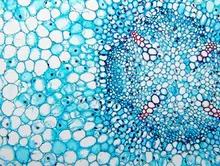Мой профиль

язык курса
длительность курса
понадобится для освоения
для зачета в своем вузе
за обучение
Dear learners, please note that only part of the materials is available for free. All course materials will be available after certification payment.
Life on Earth appears to be dominated by higher plants and animals. Yet an immense variety of microbial eukaryotes swarm in the foliage, grass, soil, bogs, ponds, streams, lakes, and oceans. These inconspicuous organisms are flagellates, algae, ciliates, sarcodines, slime molds, apicomplexans. This assemblage is generally termed the protists.
Our course is to build a comprehensive picture of protistan diversity. The major steps of eukaryotic evolution will be in focus. By tracking phylogenetic affinities in protistan lineages we will elucidate the major branches on the tree of eukaryotic life.
Many protists are unicellular. This single cell is simultaneously a self-sufficient organism, which is able to sense, move, feed, and repulse an attack on its own. Therefore, protistan cells often demonstrate greater complexity of organelles, structures, and controls than the specialized cells of metazoan animals and higher plants. We will explore how free-living and parasitic unicells implement locomotion, food acquisition, digestion, osmotic regulation, and how they accomplish their life cycle. We also will look into how protists interact with the environment and manage to be biological success.
The course is taught completely online.
Level of English: B1.
1. Basics
2. Amoeboid protists
3. Flagellates
4. Apicomplexans
5. Ciliates
6. Protists and eukaryotic evolution
Within the six modules, we will speak of (1) what protists are, (2) flagellates, (3) sarcodines and slime molds, (4) ciliates, (5) apicomplexans and microsporidians, and (6) finally we will go over the modern phylogeny, will summarize life histories and discuss evolutionary trends in free-living and parasitic protists. This online course will have an optional on-campus extension, when the students have one week of practical exercises in the lab. Using light microscopy, they will observe, explore, and document live specimens and fixed mounts of naked and testate amoebas, foraminiferans, radiolarians, heliozoans, myxomycetes, flagellates, ciliates, gregarines, and coccidians.
The discipline is aimed at the formation of universal competencies of students in the educational programs of the bachelor's / specialist's degree, as well as other competencies provided for by the educational program.
Upon completion of the course, you will know:
- What are protists, flagellates, sarcodines and slime molds, ciliates, apicomplexans and microsporidia;
- Modern phylogeny;
- Evolutionary trends of free-living and parasitic protists.
Upon completion of the course, you will be able to:
- Use light microscopy;
- Observe, examine and document living specimens and fixed preparations of naked and testate amoebae, foraminifera, radiolarians, heliozoans, myxomycetes, flagellates, ciliates, gregarines and coccidia.
Upon completion of the course, you will have:
- Knowledge of laboratory work.
язык курса
длительность курса
понадобится для освоения
для зачета в своем вузе
за обучение

Должность: Postgraduate

Должность: Профессор, заведующий кафедрой зоологии беспозвоночных

Должность: assistent

Должность: assistent

Должность: PhD Candidate in Biological Sciences

Должность: PhD Candidate in Biological Sciences
The course certificate is issued upon completion of all graded tasks of the course.
Стоимость прохождения процедур оценки результатов обучения с идентификацией личности - 3600 Р.